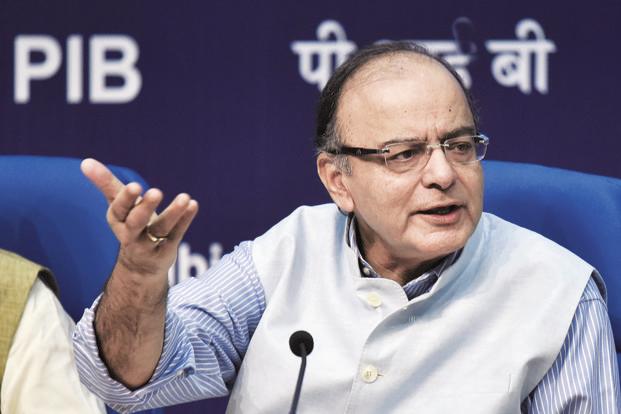The road to GST: a thin margin of error
Live mint
By Pratik Jain
Fri, Feb 17 2017. 02 48 AM IST
Not just a tax change, it is being looked at as a business transition—and that means CEOs must get it right

The GST has a far-reaching impact on profitability and pricing, and sales and manpower. Photo: HT
We are now on the last stretch of the road to the goods and services tax (GST). The GST council meeting scheduled for 18 February is expected to give the final touches to GST laws, which are then likely to be approved by Parliament in the second part of the budget session starting from 9 March. With this, the GST looks all set to be implemented from 1 July—a momentous occasion for India Inc.
The GST will have a far-reaching impact on profitability and pricing, sourcing and distribution, sales and manpower; in essence, it could change the way businesses is done. Increasingly, it is being looked at as a business transition and not merely a tax change. This has brought GST into the boardroom and to the forefront of chief executive officer (CEO) agendas.
The issue which is bothering CEOs most, in the short term, is that the transition to GST might cause business disruption. For example, what happens to the stock of goods lying across the distribution chain on the transition date? The law is still not clear on whether and how the taxes paid will be adjusted against the GST payout. If this uncertainty carries on for some more time, then it could certainly have an impact on sales in the first quarter of the financial year (April-June) as business partners might be unwilling to pick up stock. Minimizing the inventory levels upon transition is a theoretical option, but very difficult to carry out without hitting sales. Potential disruption could also be caused in the vendor ecosystem—particularly in the micro-, small- and medium-enterprises segment—for those who may not be immediately geared up for the technological and other changes that GST would necessitate. Therefore, timely communication and engagement with vendors and customers becomes extremely important.
The open customer contracts are also critical, particularly for certain sectors such as infrastructure, construction and the like, where prices are often fixed and terms relating to a change in laws are complex to implement.
The possible strategies that competitors might adopt are, essentially, not clear. This is also a cause of concern for CEOs. An organization which is able to realize the efficiencies offered by GST quickly, by restructuring the supply chain or negotiating better prices from vendors, may be better placed to reduce prices faster and capture a larger market share. Similarly, a company which currently enjoys substantial excise duty or VAT/sales tax incentives may be hit more than, say, a competitor who does not have these benefits and hence may have better ability to enhance marketing spending. The GST will also bring a larger portion of the unorganized sector into the mainstream, which will change the business dynamics for several industry segments.
The pricing of products under the GST regime is another issue which is complex and is occupying CEO mindspace. The proposed anti-profiteering clause (similar to proposals in Malaysia and Australia on the transition to GST) has further put a spin on this. This requires businesses to pass on the benefits arising from reduced rates or higher credits to customers. Notably, it doesn’t require companies to pass on the potential benefits arising from better supply-chain restructuring or reduced prices from vendors. All this, along with uncertainty around the GST’s final rates, competitive landscape and increasing consumer activism, means that CEOs are walking on thin ice. It calls for detailed work in terms of assessing the financial impact of GST and isolating it with other cost elements (such as higher input cost, exchange rate fluctuations, etc.) to arrive at the optimum pricing model.
The situation is more complex in cases where the product/service is currently exempt from taxes but could be subject to GST, in which the exemption list would be significantly pruned. This could include several food items, healthcare, education, textiles and so on.
Pricing also requires reworking the dealers’ and retailers’ margins, either as percentages or in absolute terms. This means detailed pricing simulations and scenario building, with realistic assumptions on GST rates, which itself is a worry. There is a concern that the government might be tempted to push more products into the 28% category, which could wipe away the potential benefits that might have been factored in thus far. This is prompting CEOs to look at industry forums which could voice these concerns to those responsible for working out the rates for various products and services.
CEOs of listed companies are also thinking about the potential impact of GST on their share prices. While most of the manufacturing sector should generally see an upside, some of the service industries may take a bit of a hit due to a higher rate of tax on services and potential blockage of working capital, particularly in the case of exports. Will the research analysts be able to understand the impact? Will the common shareholder appreciate the nuances of GST?
Similar issues arise in the case of new investments or dilution in equity stake. Factoring GST into the Ebitda (earnings before interest, tax, depreciation and amortization) margins for the next year is becoming a new norm in such cases, having an impact on the valuation of the companies.
All this means that the margin of error on GST transition is very thin for CEOs. Whether they get bouquets or brickbats will depend on how well they read the situation on the ground and are able to adapt.